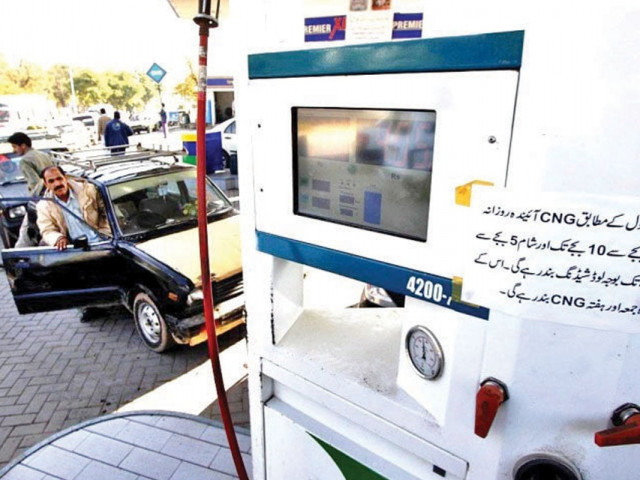Let’s not use natural gas as car fuel
The surge in demand for CNG has restricted its supply to other sectors.

Let’s not use natural gas as car fuel
The ongoing crisis took root in 2004, when the government had decided to use natural gas to fuel automobiles. The decision had been taken in order to slash the fuel import bill, which was soaring due to high petrol prices. Another objective behind the use of CNG as a fuel was elimination environmental hazards, because CNG is much more environmentally-friendly then other fuels.
However, things have changed. According to sources in Sui Northern Gas Pipelines (SNGPL), the current annual production of CNG is increasing by 7%, against growth in demand of nearly 40%. This shows that the annual shortfall of CNG is more than 400%. Similarly, the total output of gas pipeline companies in the country is around about 2,000 million cubic feet per day (mmcfd), while consumption is 2,800mmcfd.
Along with private vehicles, public transportation has also converted from diesel or petrol to CNG since then. Pakistan stands first in the list of countries where CNG is the primary means of fueling vehicles. 22% of all automobiles on the road in Pakistan – 3.5 million in total – run on CNG.

Another aspect of the crisis is the shortage of gas to the industrial sector, which is already on the verge of a shutdown due to other problems such as electricity load-shedding and law and order problems. It is obvious that the shortage of gas to the power sector is also one of the major factors behind load-shedding in the country. The fertiliser sector, which is the largest industrial consumer of gas, has recently faced multiple challenges due to the gas shortage. This can be blamed on the widespread use of CNG as fuel, because it has meant that lesser gas is available to other sectors. It seems as if policymakers in 2004 were unaware of the consequences of their decision to introduce CNG for transportation.
THE WRITER HOSTS BUSINESS TALK SHOWS ON FM 101 AND RADIO PAKISTAN AND IS PURSUING MPHIL DEGREE IN ECONOMICS
Published in The Express Tribune, December 3rd, 2012.



















COMMENTS
Comments are moderated and generally will be posted if they are on-topic and not abusive.
For more information, please see our Comments FAQ